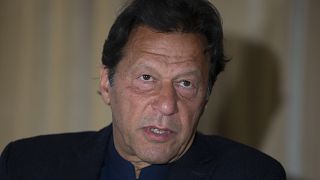
Through the course of the conversation, Mr Khan congratulated President Xi on the centenary of the Communist Party of China, the unprecedented victory in the Chinese people's battle to eradicate poverty. The Prime Minister also stressed the need to continue with the momentum of high-level exchanges to further diversify “All Weather Strategic Cooperative Partnership” between the two countries. The two leaders called on the international community to provide immediate humanitarian and economic assistance as well as continued engagement required for rebuilding the war-torn nation. The discussion also veered towards Afghanistan. While acknowledging China taking the lead role in combating climate change, Mr Khan also briefed President XI on Pakistan's wide-ranging measures undertaken for climate change mitigation and adaptation, including the Ten Billion Tree Tsunami initiative – a landmark project supported by the United Nations Environment Programme – which sets out to plant ten billion trees by 2023. It aims to connect western China with the Gwadar seaport in southwestern Pakistan through a network of roads, railways and other projects of infrastructure and development. The ambitious CPEC was launched in 2015 when President Xi visited Pakistan. The two leaders agreed to promote CPEC's green development as a high-quality demonstration of China's Belt and Road Initiative.

He also stressed that early start of work on the ML-1 railway project would complement Pakistan's geo-economics vision for national and regional development. The Prime Minister has lauded the successful, timely and high-quality implementation of the China-Pakistan Economic Corridor (CPEC) projects, and welcomed Chinese investments in the CPEC Special Economic Zones.
PAKISTAN PRIME MINISTER IMRAN KHAN FULL
“Taking stock of the negative impact of COVID-19 on the global economy, the two leaders agreed on further strengthening bilateral economic and commercial ties, including full realisation of the potential offered by the Phase-II of the China-Pakistan Free Trade Agreement, to overcome the economic headwinds,” it said. Mr Khan was appreciative of China's successful containment of the COVID-19 pandemic as well as the relief measures to developing countries, including the vaccine cooperation with Pakistan, it said. The two leaders reviewed the bilateral ties and cooperation during a telephonic conversation, the PM Office said in a statement. The announcement to boycott the trust vote was made by Jamiat-e-Ulama-e-Islam (JUI) chief Maulan Fazl-ur-Rehman.Pakistan Prime Minister Imran Khan and Chinese President Xi Jinping today agreed to further bolster their bilateral ties, including full realisation of the potential offered by the Phase-II of the Free Trade Agreement to overcome the economic headwinds. Imran Khan, a former cricket hero, assumed his office as the 19th prime minister of Pakistan in August 2018, after his center-right Pakistan Tehreek-e-Insaf (PTI) won the July general election in.

Khan is expected to meet the top leadership. Pakistani Prime Minister Imran Khan arrived in Riyadh on Sunday. Meanwhile, Pakistan’s opposition alliance the PDM (Pakistan Democratic Alliance) has called to boycott the proceedings in the assembly. Coincidentally, this is also the first time that Pakistan has won a T20I by 10 wickets. Although he looks comfortable with the numbers, some political observers believe that shooting off this last-minute letter is a sure sign of “nervousness” on the part of Imran Khan. On Thursday when he called for a meeting of his party and coalition partners, 179 members had attended the meeting. Khan needs the support of 171 lawmakers in the National Assembly, currently having 341 members out of total 342, as one seat is vacant. However, the vote of confidence will not be a secret procedure therefore it would be difficult for members of PTI to vote against their party and the Prime Minister without facing action under the anti-defection law.

The ruling dispensation has accused the opposition parties of indulging in corrupt practices after some of the PTI members cross-voted in the secret ballot voting. The decision to go for a trust vote came after a PTI candidate lost a crucial Islamabad senate seat to Pakistan People’s Party (PPP) leader and former Prime Minister Yousuf Raza Gilani by a slim margin of five votes.


 0 kommentar(er)
0 kommentar(er)
